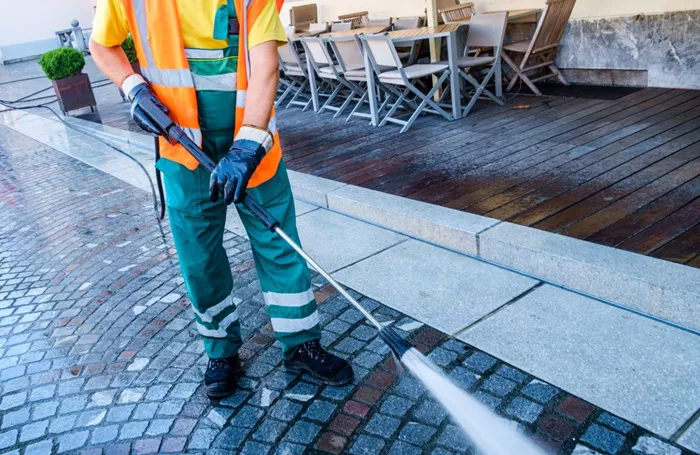Pressure washers are powerful cleaning tools that use high-pressure water to remove dirt, grime, and other debris from various surfaces. These versatile machines have a wide range of applications, making them a valuable addition to both residential and commercial cleaning tasks. Understanding what a pressure washer can be used for helps you maximize its utility and ensures that you use it effectively.
Why Pressure Washers Are Popular
Pressure washers are efficient and save time compared to traditional cleaning methods. They are particularly effective for tough stains and hard-to-reach areas. With the right nozzle and pressure setting, they can be tailored to clean delicate surfaces or tackle heavy-duty tasks.
Understanding the Basics of Pressure Washers
Pressure washers come in electric and gas-powered models. Electric washers are ideal for smaller, lighter jobs, while gas-powered ones are suitable for more demanding cleaning tasks. Accessories like nozzles and detergents further expand their range of uses.
Applications of a Pressure Washer
Cleaning Driveways and Sidewalks
Over time, driveways and sidewalks accumulate oil stains, dirt, and mildew. A pressure washer can restore these surfaces to their original condition by blasting away the grime. For concrete surfaces, use a high-pressure nozzle to ensure thorough cleaning.
Washing Decks and Patios
Wooden decks and patios often become discolored due to weather exposure. A pressure washer can remove dirt and algae, preparing the surface for staining or sealing. For wooden surfaces, it’s crucial to use a lower pressure setting to prevent damage.
Maintaining Home Exteriors
The exterior of your home, including siding and brick walls, can become dirty over time. Pressure washers can remove mold, mildew, and dirt, improving your home’s curb appeal. Use a wide-angle nozzle to ensure even cleaning without damaging the surface.
Cleaning Fences
Wooden and vinyl fences can become stained or discolored over time. A pressure washer can clean these surfaces efficiently. Adjust the pressure to avoid stripping paint or damaging the material.
Restoring Outdoor Furniture
Outdoor furniture is exposed to the elements and can accumulate dirt and mold. A pressure washer is perfect for cleaning plastic, metal, or even some types of wood furniture. Use a moderate pressure setting to avoid scratches.
Specialized Uses for Pressure Washers
Removing Graffiti
Graffiti on walls and fences can be difficult to remove with traditional cleaning methods. A pressure washer, paired with the right detergent, can effectively clean these surfaces.
Cleaning Gutters
Clogged gutters can cause water damage to your home. A pressure washer with a specialized attachment can clear out debris and ensure water flows freely.
Washing Vehicles
Pressure washers are commonly used for cleaning cars, trucks, and motorcycles. They remove dirt and grime quickly without the need for scrubbing. Use a low-pressure nozzle and a car-safe detergent to avoid damaging the paint.
Preparing Surfaces for Painting
Before painting walls, fences, or decks, it’s essential to remove old paint and debris. A pressure washer can prepare surfaces by stripping away peeling paint and ensuring a clean base.
Cleaning Boats and RVs
Boats and RVs are exposed to tough stains, salt, and grime. A pressure washer can clean these large vehicles effectively, saving time and effort.
Indoor Cleaning Applications
While pressure washers are primarily used outdoors, they can also be used indoors for specific tasks.
Tile and Grout Cleaning
Tile floors and grout lines can accumulate dirt that is hard to clean with a mop. A pressure washer with a low-pressure setting can effectively clean these areas, restoring their appearance.
Cleaning Commercial Kitchens
In commercial kitchens, grease buildup can be challenging to remove. Pressure washers can clean walls, floors, and equipment efficiently, ensuring compliance with hygiene standards.
Sanitizing Equipment
Pressure washers with hot water options can sanitize equipment, making them ideal for industrial and food-processing applications.
Safety and Precautions When Using a Pressure Washer
Choose the Right Pressure
Using the wrong pressure setting can damage surfaces. Always start with a low-pressure setting and adjust as needed.
Use the Correct Nozzle
Different nozzles are designed for various tasks. A narrow-angle nozzle provides high pressure for tough stains, while a wide-angle nozzle is suitable for gentle cleaning.
Wear Protective Gear
Protective gear, including gloves and goggles, is essential to prevent injuries. Avoid pointing the nozzle at people or pets.
Avoid Fragile Surfaces
Pressure washers are not suitable for delicate surfaces like windows, as the high pressure can cause damage.
Eco-Friendly Benefits of Pressure Washers
Pressure washers use less water than traditional cleaning methods, making them environmentally friendly. By reducing the need for harsh chemicals, they offer a sustainable cleaning solution.
Conclusion
A pressure washer is a versatile tool that simplifies many cleaning tasks. From driveways and decks to gutters and outdoor furniture, it handles tough jobs with ease. With the right techniques and precautions, a pressure washer can save time and deliver exceptional results. Whether you are tackling routine maintenance or heavy-duty cleaning, this powerful machine proves to be an indispensable asset for both homeowners and professionals.
Related topics:
How Much Do Pressure Washing Businesses Make?

